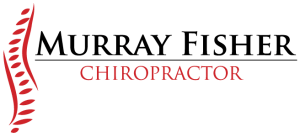 Many of us prefer to talk than listen. There is an art to being a good listener, so it’s not surprising that many books have been written on the subject. But how do you listen to your body? Well, it’s important to understand that your body does not talk to you via a small voice you hear in your head. Our body speaks to us with sensations we can perceive. For example, hunger pangs are what we call it when our body tells us our stomach is empty. When we respond to that message, we have a satisfied feeling. But if we continue to eat even after the call has been answered, we’re likely to feel bloated and uncomfortable. Most of us have experienced both situations. Our body speaks to us, but we don’t always listen.
Many of us prefer to talk than listen. There is an art to being a good listener, so it’s not surprising that many books have been written on the subject. But how do you listen to your body? Well, it’s important to understand that your body does not talk to you via a small voice you hear in your head. Our body speaks to us with sensations we can perceive. For example, hunger pangs are what we call it when our body tells us our stomach is empty. When we respond to that message, we have a satisfied feeling. But if we continue to eat even after the call has been answered, we’re likely to feel bloated and uncomfortable. Most of us have experienced both situations. Our body speaks to us, but we don’t always listen.
If listening is a skill, then it can be cultivated with practise. Conversely, the less we listen, the less well we are able to do it. Many of us have lost the skill of listening to our body. We ignore its messages, like telling us we are tired and need to sleep, or like telling us we should stop exercising while running a marathon. Or we misinterpret the messages, like feeling we need to constantly fill our stomach. Or we don’t hear the messages at all as we have cut them off by, for instance, taking medication/drugs. Blocking pain messages through taking medication rather than dealing with the cause is a common example of this practice. Professional (and amateur) athletes who continue to play while ignoring their injuries, or medicating their pain when they should have been on the sidelines, may end up needing to cut their careers short and retire with chronic injuries.
As a society, for the sake of our health, we need to start listening to our bodies when they are obviously talking to us. We should eat when our body is telling us we are genuinely hungry, and only eat enough to satisfy our hunger. We should sleep when we are tired, drink when thirsty, and stop exercising when our body says to. The more we listen to our bodies, the better listeners we become, for example, not only learning when to eat, but what to eat.
Learning to be a good listener is only part of the equation: our body also needs to be sending us accurate messages. And this is where the chiropractor comes in. Ensuring your nervous system is functioning free of interference will enhance the ability of the messages to get through. Vertebral subluxations can cause nerve interference and only a chiropractor is trained to check for their presence and correct them.

